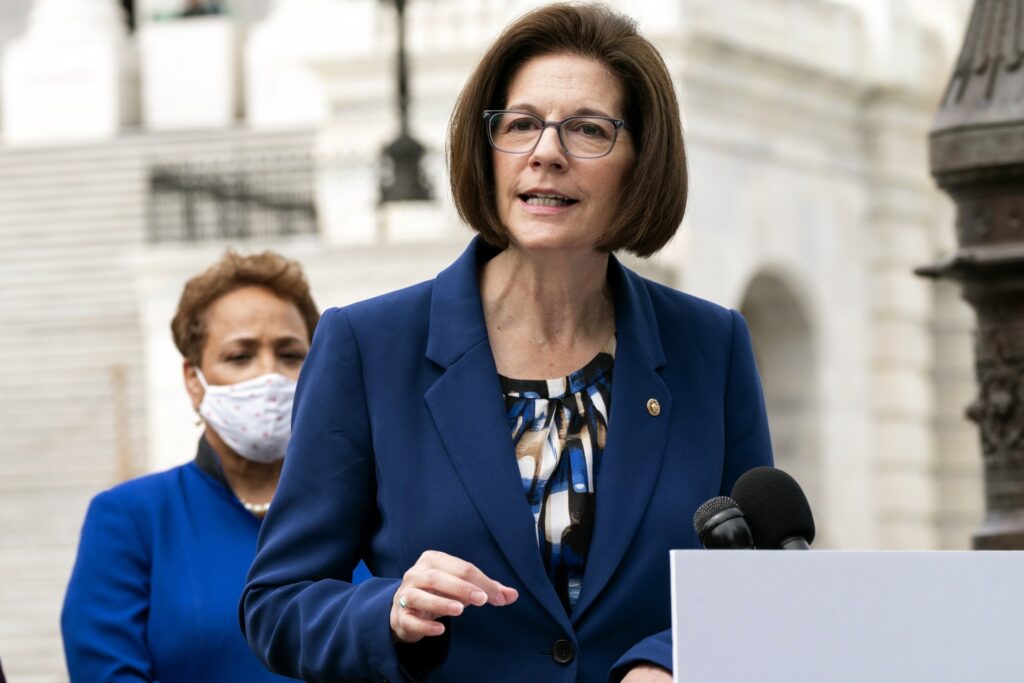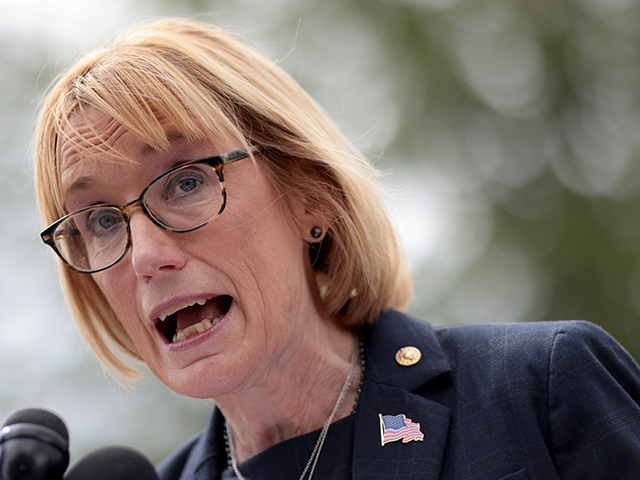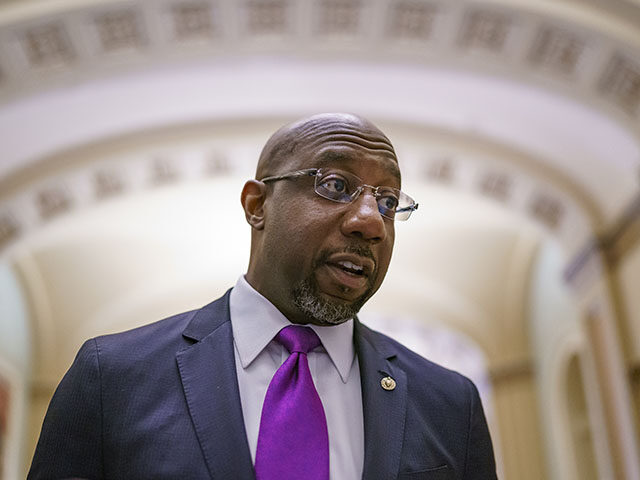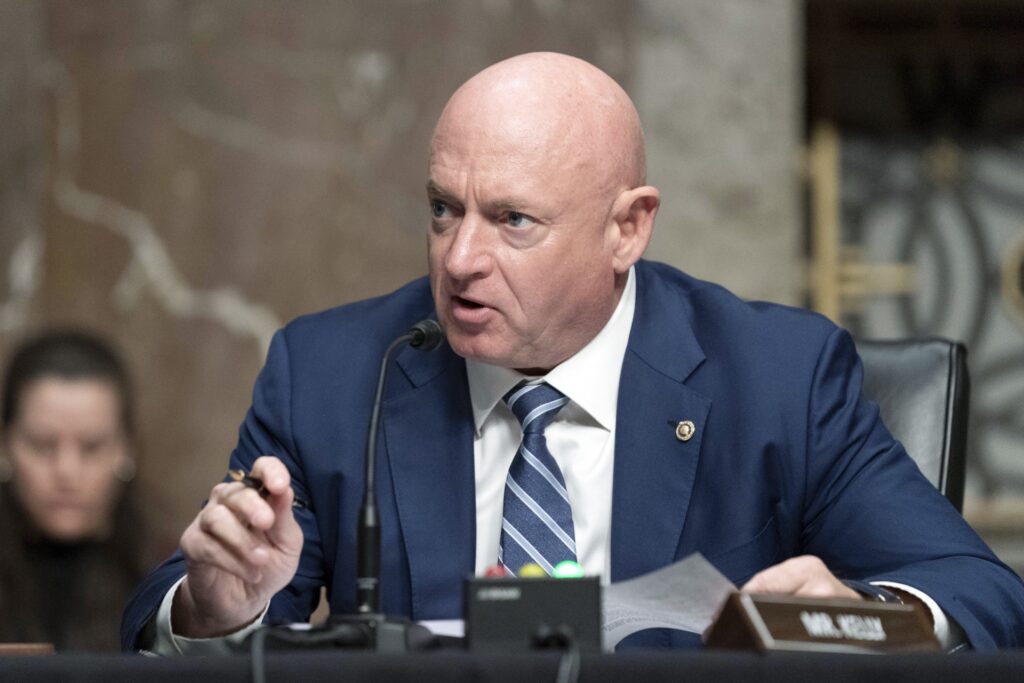Four embattled Senate Democrat incumbents have set a pattern of refusing to take responsibility for soaring inflation and gas prices that have occurred in record-setting fashion under their leadership.
According to September’s Consumer Price Index (CPI), inflation rose 8.2 percent compared to a year earlier. A recent Heritage Foundation study shows wages for American families are down $6,000 after adjusting for inflation, an increase from an earlier estimate that put the decline in real wages at $4,200.
The costly inflation, the number one issue in the 2022 midterm cycle, has caused Democrats to displace the blame for soaring costs on the fossil fuel and pharmaceutical industries rather than on their fiscal or energy policies.
On Thursday, Sen. Catherine Cortez Masto (D-NV), who is losing in the polls to Republican Adam Laxalt, claimed gas prices are spiking because oil companies are not producing enough oil. “Instead of increasing supply, they’re taking in profits,” she tweeted.
Masto did not mention that gas prices have spiked since Democrats regained control of the executive branch, legislative branch, and administration state in 2021. Nor did she mention President Joe Biden’s campaign promise to reduce oil drilling. In the last two years, the Biden administration has succeeded in driving up private and public financing costs of oil drilling, halting drilling on public lands, and canceling the Keystone pipeline.

Sen. Catherine Cortez Masto (D-NV) on April 26, 2022, on Capitol Hill in Washington. Cortez Masto faces Republican challenger Adam Laxalt in the November election. (AP Photo/Jacquelyn Martin)
Sen. Raphael Warnock (D-GA), seeking reelection against Republican Herschel Walker, also refused to take responsibility for record high inflation during last week’s debate. Instead, he instead blamed corporations.
“There is no question people are feeling pain at the grocery store and pump,” Warnock admitted about inflation. “While we are seeing record prices, a lot of our corporate actors are seeing record profits in the gas industry and the pharmaceutical industry.”

This combination of photos shows, Sen. Raphael Warnock (D-GA) speaking to reporters on Capitol Hill in Washington, August 3, 2021, left, and Republican Senate candidate Herschel Walker speaking in Perry, Georgia, September 25, 2021. (AP Photo)
Walker immediately shot back that “families are hurting… because of the bills and the laws you are passing,” noting that he voted for the $433 billion “Inflation Reduction Act,” which will raise taxes “significantly” and could worsen inflation in the long term.
Warnock voted also for Biden’s $1.9 trillion American Rescue Plan Act, despite warnings that it would worsen inflation. Since then, inflation hit its highest level in 40 years.
Sen. Maggie Hassan (D-NH), who is fighting for her political life against Republican Gen. Don Bolduc, has taken a similar tact. “Bolduc would fight for Big Pharma & Big Oil, not Granite Staters,” she said Tuesday without presenting any evidence. “I’m working to hold corporate special interests accountable and lower costs on everyday goods.”
In turn, Gen. Bolduc has blamed Hassan for voting with Biden nearly 100 percent of the time. “We got to get rid of career politicians. Granite Staters say, ‘number one problem is career politicians.’ Twenty-years, right there,” he said during Tuesday’s debate, pointing at Hassan in the room.
“Look at what has happened to New Hampshire: historic inflation, people are hurting, they can’t afford the necessities of life,” he added.

Sen. Maggie Hassan (D-NH) speaks at a press conference outside the U.S. Capitol September 21, 2021 in Washington, DC. (Win McNamee/Getty Images)
Sen. Mark Kelly (D-AZ) has handled the question of rising costs a different way. During a debate last week, Kelly blamed Biden for inflation, though he voted for the polices Biden has signed into law. Kelly lauded a letter he sent Biden to increase oil production, yet the Senator voted for Biden’s war on American energy agenda 94 percent of the time. Kelly has also voted to spend more money via the so-called Inflation Reduction Act, which will cost taxpayers 700 billion dollars.
Challenger Blake Masters slammed Kelly for his anti-American energy record. “First, [Biden and Kelly] declared war on oil and gas. Well, what’d they think was going to happen? Masters questioned. “When you declare war on oil and gas in a country that is still mostly powered by oil and gas, you think that’s going to send the price of energy to the moon? Well, yeah, it did.”
“They took gas from two dollars to six dollars. Now they want a prize because it’s back in the five dollars. When you make energy too expensive — everything you need to live takes energy to make or to move — you make energy expensive, you get some inflation,” Master concluded.
According to a Wednesday poll, 93 percent of registered voters are concerned about soaring inflation and the poor economy with the midterm election. Eighty-one percent say the Democrats’ economy will be a “major” factor in how they vote. Eighty percent say the same about inflation. Sixty-four percent say the Democrats’ economic and energy policies were either very or somewhat responsible for inflation.
Follow Wendell Husebø on Twitter @WendellHusebø. He is the author of Politics of Slave Morality.


COMMENTS
Please let us know if you're having issues with commenting.